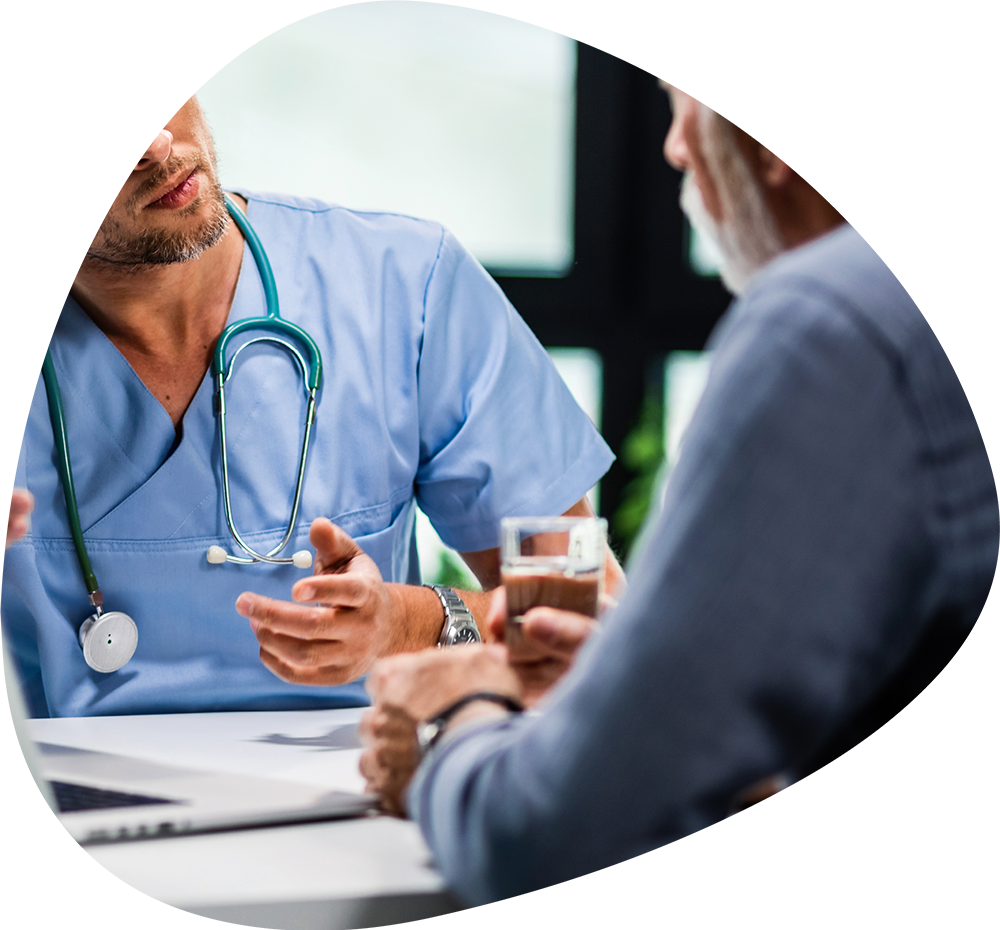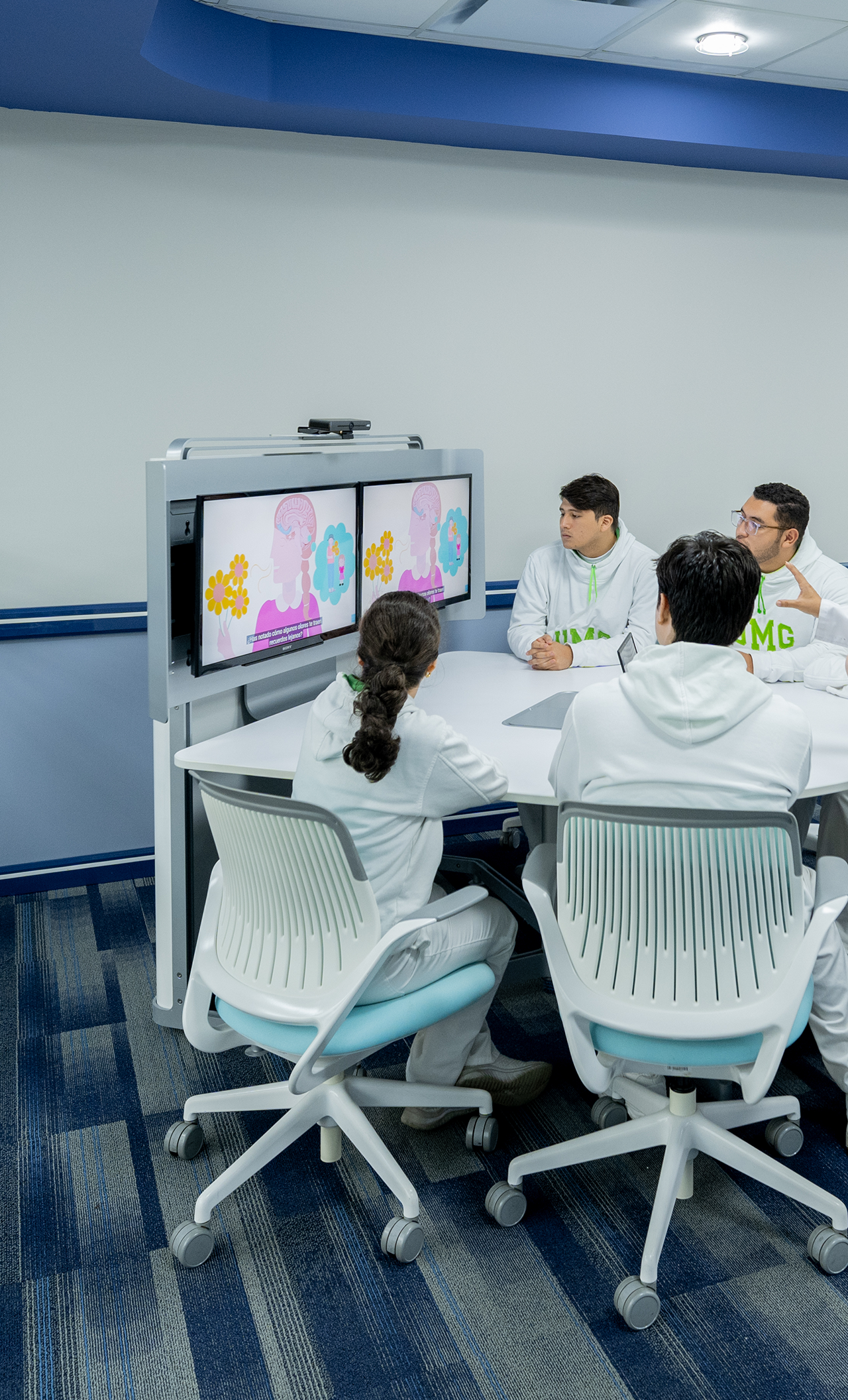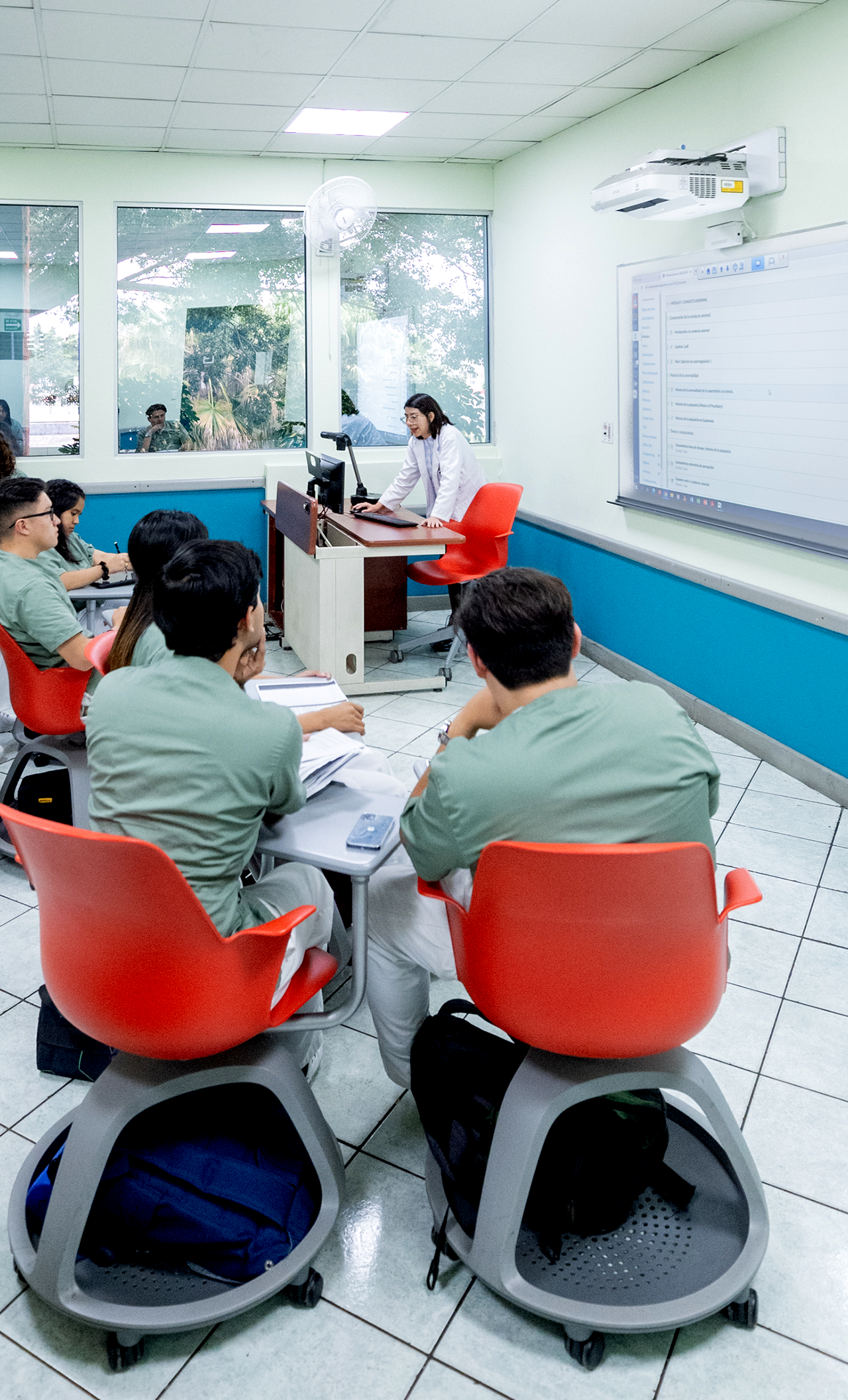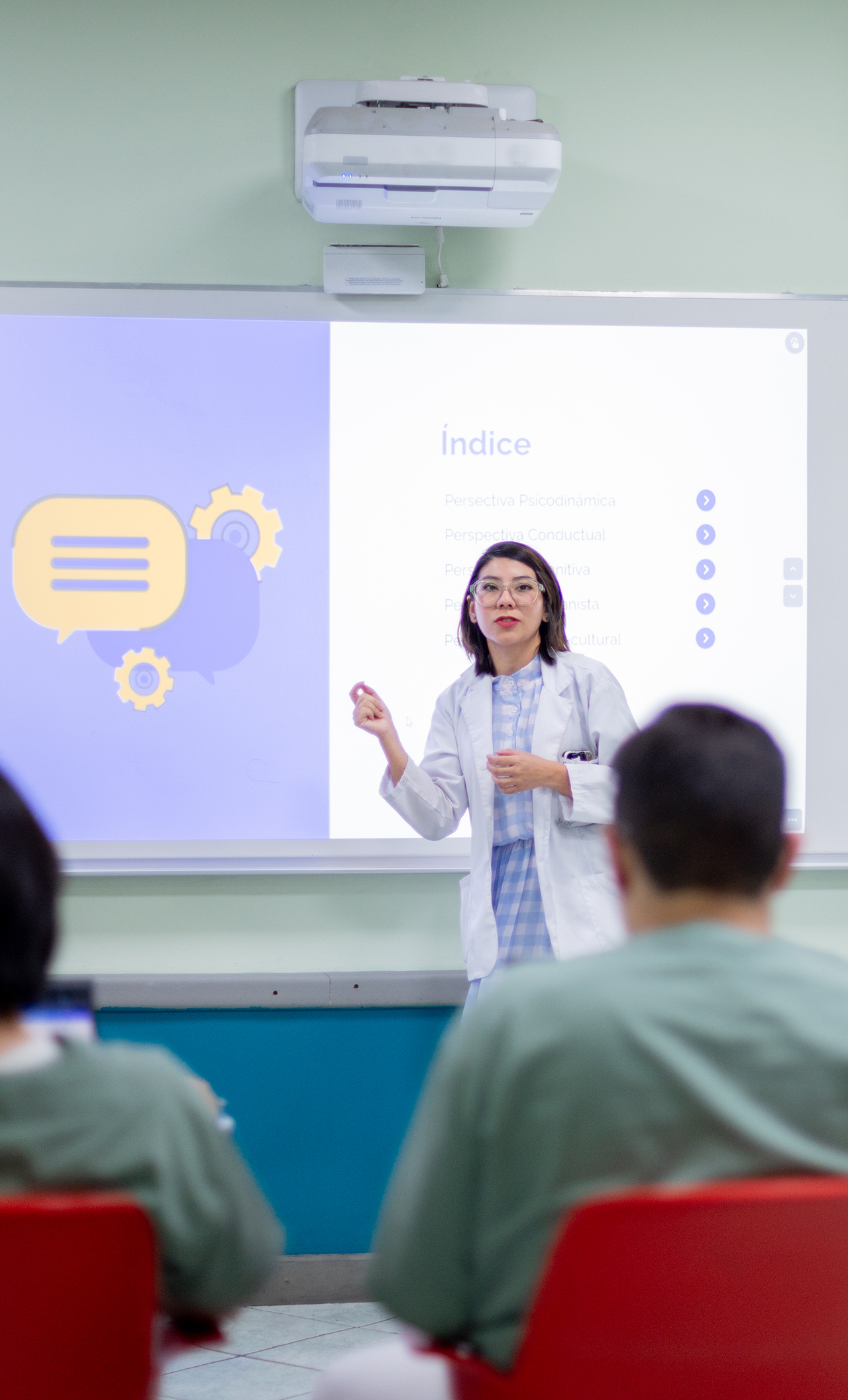
- Bachelor's Degree in
- Health and Medical Sciences
- Degree to be obtained
- General Physician and Surgeon
- Academic degree
- Bachelor's Degree
- Duration
- 7 years
- Modality
- In-person
- Schedule:
- Daily Morning Session
- Career description
-
The Medical School at Mariano Gálvez University of Guatemala prepares health professionals with a high level of performance, scientific, academic and technological excellence, with a vocation of service; training them to provide integral medical attention to the human being and quality to the community, contributing to the well-being and health of the Guatemalan society.
- What will you learn during the program?
-
Medical students will be able to master methods and techniques of medical care, health promotion and disease prevention; conduct scientific research, lead medical teams, interpret the bio-psycho-social phenomena of the individual and the community to provide a holistic health service.
Gallery
AdmissionProfile
Students of the Bachelor's Degree in Medical Sciences must:
- Be a graduated from the high school level, with an average score of 75 points.
- Have obtained the evaluation results required by the School in the selection and admission process, with high percentage in reading skills (vocabulary, speed and comprehension) and logical-mathematical abilities.
- Demonstrate a high level of physical and mental health that will enable them to successfully complete their studies in order to begin their professional training.
- Have a vocation of service, with firm conviction that their decision to belong to the community of future medical professionals, imposes exemplary duties and obligations, through their daily actions inside and outside the University.
- Possess attitudes associated with the willingness to change and high disposition to contribute to the creation of better living and health conditions for themselves and their environment.
Graduate'sProfile
The General Physician and Surgeon formed by the School of Medical and Health Sciences of Mariano Gálvez University, is distinguished for being aware that human life and health entails an extraordinary responsibility to attend the medical-social requirements of the health-disease process in the country, efficiently and with a solid ethical, scientific, technological and humanitarian attitude. Therefore, they are aware that medical knowledge encompasses not only the knowledge of the clinical characteristics of diseases, but also their epidemiology and relationships with the science of Public Health, focusing on the pertinent updating of the constant discoveries that are the basis of evidence-based medicine.
They act within a framework of respect, compassion and integrity with patients, family, community and the health team, maintaining an ethical behavior towards the medical dilemmas they experience in their practice, as well as with the environment.
Employs the science of evidence-based medicine at the primary care bedside.
Masters the clinical method and applies it proficiently.
Demonstrates leadership, management and teamwork skills in the administrative and evaluation processes that they experience as general practitioners.
Career Opportunities

Public hospitals and clinics, private medical offices, community health centers, emergency medicine, medical research, medical education and teaching, public health and epidemiology, occupational medicine, telemedicine, sports medicine, among others.
Curriculum
| 1° Ciclo | BIOLOGÍA CELULAR Y MOLECULAR HUMANA I | CIENCIAS EXACTAS EN LA SALUD | DESARROLLO HUMANO Y PROFESIONAL | METODOLOGÍA DE LA INVESTIGACIÓN | PRINCIPIOS CLÍNICOS | QUÍMICA INORGÁNICA | SALUD MENTAL I, BASES BIOLÓGICAS DE LA CONDUCTA | SISTEMAS DE COMUNICACIÓN |
|---|---|---|---|---|---|---|---|---|
| 2° Ciclo | BIOESTADÍSTICA | BIOLOGÍA CELULAR Y MOLECULAR HUMANA II | EMBRIOLOGÍA | FÍSICA MÉDICA I | INVESTIGACIÓN I | PROPEDÉUTICA MÉDICA | QUÍMICA ORGÁNICA | SALUD MENTAL II, PSICOLOGÍA DE LA ANORMALIDAD |
| 3° Ciclo | ANATOMÍA I | BIOQUÍMICA I | FÍSICA MÉDICA II | HISTOLOGÍA I | INVESTIGACIÓN II | REALIDAD NACIONAL | SALUD MENTAL III, DES. PSICOLOG. DEL NIÑO Y DEL ADOLESCENTE | SEMIOLOGÍA I |
| 4° Ciclo | ANATOMÍA II | ATENCIÓN PRIMARIA EN SALUD | BIOQUÍMICA II | EPIDEMIOLOGÍA | FISIOLOGÍA I | HISTOLOGÍA II | SALUD MENTAL IV, SALUD MENTAL EN ATENCIÓN PRIMARIA | SEMIOLOGÍA II |
| 5° Ciclo | ANATOMÍA III | BIOQUÍMICA III | FARMACOLOGÍA I | FISIOLOGÍA II | MICROBIOLOGÍA I | PATOLOGÍA I | SALUD PÚBLICA | SEMIOLOGÍA III |
| 6° Ciclo | BIOQUÍMICA CLÍNICA APLICADA | FARMACOLOGÍA II | FISIOLOGÍA III | INMUNOLOGÍA | MICROBIOLOGÍA II | PATOLOGÍA II | REHABILITACIÓN | TECNOLOGÍA BIOMOLECULAR |
| 7° Ciclo | ATENCIÓN AMBULATORIA Y PRE-HOSPITALARIA | ATENCIÓN NEUROLÓGICA | ATENCIÓN OFTALMOLÓGICA | GENÉTICA HUMANA | MEDICINA FORENSE | MEDICINA LABORAL | ||
| 8° Ciclo | BIOÉTICA I | MEDICINA INTERNA I | ||||||
| 9° Ciclo | MEDICINA INTERNA II | PSIQUIATRÍA | ||||||
| 10° Ciclo | GESTIÓN Y LIDERAZGO DE SERVICIOS DE SALUD | PEDIATRÍA | ||||||
| 11° Ciclo | CIRUGÍA | MEDICINA ALTERNATIVA | TRABAJO DE GRADUACIÓN I | |||||
| 12° Ciclo | GINECOLOGÍA Y OBSTETRICIA | TRABAJO DE GRADUACIÓN II | ||||||
| 13° Ciclo | ANTROPOLOGÍA MÉDICA | PRÁCTICA PROFESIONAL ASISTIDA RURAL | ||||||
| 14° Ciclo | BIOÉTICA II | PRÁCTICA PROFESIONAL ASISTIDA HOSPITALARIA |
Find the carreer at your nearest campus
Contact information
Saturday: 07:00 to 10:00 hours.


